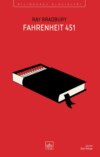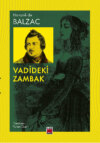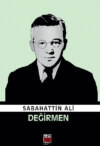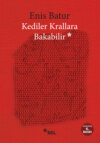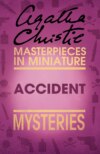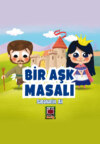Kitabı oku: «The Boy Who Harnessed the Wind», sayfa 2
“Odi, odi,” said a farmer at the doorstep, meaning hello, can I come in?
The chief’s messenger and bodyguard, Mister Ngwata, stood at the door in his short pants and army boots, dressed as a policeman. It was Mister Ngwata’s job to protect the chief and filter all of his visitors. He also handled all the chickens.
“Come, come,” he said.
The chief sat on the sofa, dressed in a crisp shirt and nice trousers. Chiefs usually dressed like businesspeople, never in feathers and hides. That’s in the movies. Chief Wimbe also loved his cat, which was black and white but had no name. In Malawi, only dogs are given names, I don’t know why. The cat was always in the chief’s lap, purring softly as the charo stroked its neck.
“Charo, Charo,” the farmer said, bending to one knee and gently clapping his hands as a sign of respect. “We have an issue that requires your intervention. The land you granted me fifteen years ago is being encroached upon by my brother’s son. I need you to help so there’s no bloodshed.”
“Very well,” the chief replied. “Let me think about this and carry out some research. Come back on Sunday and I’ll have an answer.”
“Oh, zikomo kwambiri, Charo. Thank you, with respect.”
We waited until the farmer left and approached Mister Ngwata.
“We’re here to see Gilbert,” we said as we passed through the door.
“Hmmph.”
Gilbert was in his room with a tape deck singing to Billy Kaunda, who’d just been voted Malawi’s best musician of the year. For a boy, Gilbert had a beautiful singing voice and would later record two albums in Blantyre. My voice sounded like one of the guinea fowl that screeched in our trees as it pooped, but I never let that stop me.
“Gilbert, bo?”
“Bo!”
“Sharp?”
“Sharp!”
This was our slang, strictly observed at every meeting. The word bo was short for bonjour, started by some chaps learning French in secondary school and wanting to show off. I don’t know where “sharp” came from, but it was like saying, “Are you cool?” If you were feeling really good, you could even go a bit further:
“Sure?”
“Sure!”
“Fit?”
“Fit!”
“Ehhh.”
“Let’s go to trading,” I said, meaning the trading center. “I hear the drunkards were spilling out of Ofesi last night.”
This was the Ofesi Boozing Centre, a forbidden and therefore fascinating place. Ofesi sat on the outskirts of the trading center, one of the last shops before the road opened toward Chamama town. Loud, thumping music always played inside the dark doorway, even at noon. It was where men with screwed-up eyes would appear in the doorframe, smoking cigarettes, then toss out empty cardboard cartons of booze to join the mountain of others in the dirt. Whereas most people saw garbage in those cartons, we saw treasure and possibility.
Although Geoffrey, Gilbert, and I grew up in this small place in Africa, we did many of the same things children do all over the world, only with slightly different materials. And talking with friends I’ve met from America and Europe, I now know this is true. Children everywhere have similar ways of entertaining themselves. If you look at it this way, the world isn’t so big.
For us, we loved trucks. It didn’t matter what kind of trucks: four-ton lorries that rumbled past from the estates kicking up dust, or the half-ton pickups that traveled back and forth to Kasungu town, just an hour’s drive away, with passengers squeezed in back like a pen full of chickens. We loved all trucks, and each week, we’d compete to see who could build the biggest and strongest one. While my friends from America could find miniature trucks already assembled in their shopping malls, we had to build ours from wire and empty cartons of booze. Even still, they were just as beautiful.
The cartons discarded by the drunkards at Ofesi once held Chibuku Shake Shake, a kind of beer made from fermented maize that is popular in Malawi. It’s sour tasting and contains bits of maize that settle at the bottom, requiring you to shake it up before enjoying, hence the name. Believe it or not, it’s actually nutritious. I’m not a drinker myself, but I’ve been told it takes several cartons of Shake Shake to get a person drunk, so of course, people in Ofesi drink as many as possible before tossing them into the road.
After washing out the booze, these cartons were ideal for making the chassis of a toy truck. We used beer bottle caps for wheels, which also doubled as counters at school (“Three Coca-Cola plus ten Carlsberg equals thirteen”).
We picked mangoes from the neighbor’s trees and traded them for lengths of wire, which we used to make axles and attach the bottle cap wheels. We later discovered that plastic cooking oil caps worked much better as wheels, enabling the trucks to last much longer. We even took our fathers’ razor blades and cut designs into the plastic to give each vehicle its own signature treading. That way, when you saw a tire track in the dirt, you knew instantly if it belonged to the great fleets of Kamkwamba Toyota, for instance, or Gilbert Company LTD.
Soon we were building our own monster wagons, called chigirigiri, that resembled something like a go-cart in America. The frames were thick tree branches forked at one end, where a person could sit at the junction. We then dug up large, round tuber roots called kaumbu and carved them into wheels, using blue gum poles as axles. All the loose parts were then lashed together with vine and tree bark.
Taking a rope, one person pulled the car while the driver steered with his feet. With two cars side by side, we held monster derbies down the dirt road.
“Let’s race.”
“For sure.”
“Last one to reach Iponga’s will go blind!”
“GO!”
Iponga Barber Shop was the first of its kind in the Wimbe trading center, and where I got all my haircuts. When my father brought me there each month, Mister Iponga would drape me in a tattered sheet and say, “What will it be?” Pictures of men with many different styles hung from the wall—styles such as the Tyson, after the famous American boxer, in addition to the English Cut, the Nigeria, and the Buddha, which was totally bald. I usually went for the Office Cut, which was close all over without any frills. I think it was the cheapest, too.
Of course, the problem with getting haircuts in the trading center was the frequent power outages that plagued the country. These could easily happen while Iponga held his electric clippers to your head.
“Oops, lost the power. Come back in a few hours.”
“But…”
The best idea was to bring a hat, or else go at night, so you could slip home under the cover of darkness and return the next morning to have it fixed.
If we had some pocket change from our parents, we stopped by Mister Banda’s shop for a cold bottle of Fanta or a handful of Dandy sweets, which Banda kept in a glass jar below the shelves of Drews liver salts and Con Jex cough tabs, Top Society Luxury lotions, Easy Black hair dye, long ribbons of Blue Band margarine, bars of Lifebuoy soap, and packets of Cowbell powdered milk.
Or if we were hungry, we pooled our money and headed to the kanyenya stand, which was really just a giant vat of boiling grease over a fire, next to the boozing center. There we bought delicious pieces of fried goat and chips for just a few kwacha. The man working the vat grunted, “How much?” and you answered, “Five kwacha.” He sawed off a good chunk from a carcass hanging on the gallows, causing the swarm of black flies to circle once, then land again. He dropped the meat into the oil, added a few more sticks to his fire to get a raging boil, then threw in a handful of sliced potatoes. When everything was finished, he tossed them onto the counter, along with a small pile of salt for dipping.
“You mother is a good cooker,” said Gilbert. “But she’s never made anything as good as this.”
“For sure.”
But most of the time we had no money, so we spent our afternoons in hunger and dreams. On our way home we played a certain game with the mphangala bush. Its bright red flowers made the perfect crayons for children, but its stems could also tell your fortune. One person uprooted the stem, then tried to split it down the middle by pulling it apart. If you did this without breaking the stem in half, you’d have meat for dinner waiting for you at home.
“Eh man, you’re lucky. Let me come over!”
But if you broke the stem, that was a different story.
“Oh, sorry, friend, your mother’s at a funeral. You’ll find only water at home! HA! HA!”
Evenings in the village, just after the sun disappeared over the blue gums, were my favorite time of day. This was when my father and Uncle John—Geoffrey’s father—finished work in the maize and tobacco fields and returned home for supper. My mother and older sister Annie would be busy in the kitchen preparing the food, sending out all the delicious smells riding on the breeze. All my cousins would gather in the courtyard between my house and Geoffrey’s house to kick the soccer ball—made from plastic shopping bags we called jumbos, which we then bound in twine. And as the light faded, perhaps a farmer from the next village would stop by.
“Mister Kamkwamba, I have something from my garden,” he’d say, opening a bundle of papers to reveal some nice tomato plants. They’d negotiate a price and my father would plant them behind the house.
During the rainy season when the mangoes were ripe, we filled our pails with fruit from the neighbor’s trees and soaked them in water while we ate our supper. Afterward, we passed the fruits around, biting into the juicy meat and letting the sweet syrup run down our fingers. If there wasn’t any moonlight to continue playing, my father gathered all the children inside our living room, lit a kerosene lamp, and told us folktales.
“Sit down and hush up,” he said. “Have I told the one about the Leopard and the Lion?”
“Tell it again, Papa!”
“Okay, well…one day long long ago, two girls were walking from Kasungu to Wimbe when they became too tired to continue.”
We sat on the floor, hugging our knees against our chests and hanging on every word. My father knew many stories, and the Leopard and the Lion was one of my favorites. It went like this:
Rather than taking a nap in the dirt, the two young girls looked for a clean, quiet place to sleep. After some time, they came across the house of an old man. After making their request, the old man said, “Of course you can stay here. Come on in.”
That night when the girls were fast asleep, the old man snuck out the door and walked into the dark forest. There he found his two best friends, the Leopard and the Lion.
“My friends, I have some tasty food for you. Just follow me.”
“Why thanks, old man,” the Leopard said. “We’re coming straightaway.”
The old man led his two friends through the forest and back to his house. The Leopard and the Lion were so excited for their meal they even started singing a happy tune. But as they were approaching, the two girls happened to wake up. They felt refreshed after their nap and decided to continue on their journey. Not seeing the old man, they left a kind note thanking him for the bed.
Finally, the old man arrived at the house with the Leopard and the Lion.
“Wait here and I’ll go and get them,” he said.
The old man saw the bed was empty. Where did they go? he wondered. He looked for the girls but couldn’t find them. Finally, he discovered the note and knew they were gone. Outside, the Leopard and the Lion were growing impatient.
“Hey, where’s our food?” said the Leopard. “Can’t you see we’re salivating out here?”
The old man called out, “Hold on, they’re here someplace. Let me find them.”
The old man knew if the Leopard and the Lion discovered that the girls had gone, they would surely eat him for supper instead. The old man kept a giant gourd in the corner of his house for drinking water. Seeing no other option, he jumped inside and hid.
Finally, after waiting so long, the Lion said, “That’s it. We’re going in!”
They broke open the door and found the house empty. No girls, no old man, no supper.
“Hey, the old man must’ve tricked us,” said the Leopard. “He’s even left himself.”
Just then, the Leopard spotted a bit of the old man’s shirt hanging out from the gourd. He motioned to the Lion, and together they tugged and tugged until the old man came flying out.
“Please no, I can explain,” cried the old man. But the Leopard and the Lion had no patience for stories and quickly ate him.
My father clapped his hands together, signaling the end of the story. Then he looked around to all of us children.
“When planning misfortune for your friends,” he said, “be careful because it will come back to haunt you. You must always wish others well.”
“Tell another, Papa!” we shouted.
“Hmm, okay…what about the Snake and the Guinea Fowl?”
“For sure!”
Sometimes my father would forget the stories halfway and make them up as he went along. These tales would spiral on for an hour, with characters and motives ever changing. But through his own kind of magic, the stories would always end the same. My father was a born storyteller, largely because his own life had been like one fantastic tale.
CHAPTER TWO
WHEN MY FATHER, TRYWELL, was a young man, he was quite famous. These days he’s a farmer, just like his own father and the father before him. Being born Malawian automatically made you a farmer. I think it’s written in the constitution somewhere, like a law passed down from Moses. If you didn’t tend the soil, then you bought and sold in the market, and before my father gave himself to the fields, he led the crazy life of a traveling trader.
This was when he lived in Dowa, a small town southeast of Masitala perched high in the brown hills. Back during the ’70s and ’80s, Dowa was a vibrant place where a young man could go and make some money. At that time, Malawi was under the control of Hastings Kamuzu Banda, a powerful dictator who ruled the country for more than thirty years.
Every Malawian grew up knowing the story of Banda. When he was a young boy in Kasungu, living in the shadow of the great mountain where the Chewa defeated the Ngoni, Banda had walked barefoot one thousand miles to work in the gold mines of South Africa. Later, he was given a scholarship to universities in Indiana and Tennessee, where he earned a degree in medicine. He was a doctor in England before he returned to Malawi to deliver us from British rule. He became our first great leader, and in 1971, under his extreme pressure, our Parliament gave him the title Life President.
Banda was a tough man. He demanded that every trader in Malawi hang his picture in his shop, and no other photo could dare hang higher. If you didn’t have the image of our Dear President on the wall—dressed in his three-piece suit and clutching a flywhisk—you would pay a hefty price. It was a frightening and confusing period in our history. Banda also forbade women to wear pants or dresses above the knee. For men, having long hair would get you tossed in jail. Kissing in public was also forbidden, as were films where kissing was portrayed. The president hated kissing, and even today, people are scared of smooching in the open. On top of that, policemen and the Young Pioneers—Banda’s personal thugs—were always snatching up people who dared criticize his policies. Many Malawians were jailed, tortured, and even tossed into pits of hungry crocodiles.
Despite all of this, it was an exciting time to be a trader. My father tells stories about hitchhiking in pickups across the countryside to Lake Malawi, where he bought bundles of dried fish, rice, and used clothing, to sell back in the Dowa market. Lake Malawi is one of the biggest in the world and nearly covers the entire eastern half of our country. It’s so vast it has waves like an ocean. I was twenty years old before I ever saw this lake with my own eyes, despite having grown up only two hours from its shores. But once I stood on its banks and looked out across its endless-looking water, my heart was filled with a great love for my country.
Once at the lake, the traders would travel to the cities of Nkhotakota and Mangochi aboard the steamer ships Ilala and Chauncy Maples, where good food was served, and traders drank and danced on the decks through the voyage. At the lake my father bartered with the Muslim businessmen, known as the Yao, who populate that part of the country.
The Yao arrived in Malawi more than a hundred years ago from across the lake in Mozambique. The Arabs from Zanzibar convinced them to become Muslim, then recruited them to capture our Chewa people and put us into bondage. They raided our villages, killed our men, then sent our women and children across the lake in boats. Once there, the slaves were shackled by the neck and made to march across Tanzania. This took three months. Once they reached the ocean, most of them were dead. Later on, the Yao captured and traded us to the Portuguese in exchange for guns, gold, and salt.
If it weren’t for the great Scottish missionary David Livingstone, the Yao and Chewa might still be at odds today. Livingstone helped end slav-ery, opened Malawi to trade, and built good schools and missions. Young men became educated and earned money, and once these economic opportunities were available to all, our two tribes had little reason to fight. Today we consider the Yao our brothers and sisters. My mother herself is a Yao, and I am half Yao.
My father has told me many stories about the small town of Mangochi, located on the southern tip of the lake, just near the mouth of the Shire River. The way he describes this place makes it sound like the great bazaars of northern Africa I’ve read about in books. The streets were filled with traders from all over Malawi, Zambia, Tanzania, and Mozambique, all their different languages and songs mixing with the smell of sweating bodies, spices, fried fish, and roasted maize. Pocketfuls of money were quickly emptied in the boozing dens, and by professional ladies of the night, who lured traders into their rooms for hot baths, expensive food, and other pleasures I didn’t understand until I was older. Often, traders got carried away in such places and ran out of money. My father remembers seeing men running away with nothing but their underpants.
Many of these same traders also had wives and children back home, in addition to the prostitutes. This was well before my father met my mother, back when he was young and too busy traveling to be tied down with a woman or family. He had a few girlfriends, sure, but he generally stayed away from the bar girls. And because of his reluctance to do this, the people in the market started calling him the Pope.
“Eh, Papa,” they’d tease, using the Chichewa word. “What happened? Did you fall off the pawpaw tree and break your testicles? Don’t listen to your mother—these girls don’t really burn!”
My father endured this teasing, because what else could he do? And after a while, that name caught on with so many people that hardly anyone remembered where it came from.
MY FATHER WAS A giant man, but his tolerance for alcohol was even greater. One night he and his friends settled down in the Dowa General Grocery at 5:00 p.m. As my father tells it, he drank fifty-six bottles of Carlsberg beer, and at 2:00 a.m. walked home to tell the story. These drinking sessions sometimes led to fistfights, which my father welcomed like sport.
After a while, he became one of the most famous traders around, but not just for his cleverness in business, or his ability to drink crates of beer. My father was legendary for his strength. In Malawi we like to say, “One head cannot lift up the roof.” Well, my father must not have been listening.
Every July 6, we Malawians celebrate our independence from England, much like our brothers and sisters do in America on July 4. And like in the United States, the way we celebrate is with great parties filled with lots of music, dancing, and delicious grilled meats. It was on such a holiday that Robert Fumulani, the holy father of Malawian reggae music, came to sing at Dowa District Hall, and my father—then twenty-two years old—was determined to go.
Robert Fumulani was my father’s most favorite singer. Fumulani’s songs often described the struggles of the poor, his lyrics straight from the warm red Malawian soil. My father had seen Fumulani perform many times already, in Kasungu, Lilongwe, Nkhotakota, and Ntchisi, and each time, the singer wore his signature white shirt that made him look sharp.
Well, if you can imagine, the line to see Fumulani on Independence Day began forming early, right around the time my father stepped up to the bar at General Grocery. Hours passed, and by the time he stumbled outside, the beautiful sounds of Fumulani’s voice could be heard all over town. The concert had begun.
My father rushed over to the hall, where he found a line still waiting to get inside. If you’ve ever stood with us Africans at airports or bus depots, you know we’re never good with lines. What if we miss something? So wasting no time, my father pushed his way to the front, but was stopped at the door by a policeman.
“The concert is full,” the policeman announced. “No one else allowed inside.”
My father presented his ticket, but the policeman still refused. Being a bit drunk and bold, my father pushed the policeman aside and quickly mixed into the crowd. Once there, he discovered what a great party it was! There onstage was Robert Fumulani and his Likhubula River Dance Band, with the singer dressed in his smart white shirt and his guitar strapped to his neck. In the back, workers tended to giant barbecue and kanyenya stands loaded with delicious goat and beef. And of course, there was lots of Carlsberg.
Overcome with excitement, my father squeezed through the mob of sweaty bodies until he reached the front. Fumulani was singing one of his most beloved songs, “Sister,” about his estranged wife.
“Lady,” he sang, “don’t insult me today just because I’m poor. You don’t know what my future holds…”
As if hypnotized by this wonderful music, my father began to dance. But he wasn’t doing just any dance—he was a man possessed, a man who knows in his heart that he is the greatest dancer on earth. His arms and legs became as graceful as a gazelle’s, and his giant body sprang in the air like a flying grasshopper. Oh, what moves! But when he opened his eyes, he realized the music had stopped. Everyone on the floor now stood in silence. Robert Fumulani, the blessed father of our national music, stared down, looking angry.
He pointed to my father and called out, “Someone remove this drunkard from the floor. He’s ruining my show!”
The crowd shouted and hissed, “He is here! Take him away!”
My father was crushed. How could this be? He was just having a good time, and now he was being called down like a child by our dear hero. Feeling betrayed, he straightened himself and pointed to the stage.
“Mister Fumulani,” he yelled, “I have an invitation to be in this room. And like every Malawian here celebrating their proud independence, I am doing the same. I’m not the only person here who is drunk, you know. Besides, isn’t it your job to sing and entertain?”
A line of policemen and Young Pioneers now circled the dance floor, waiting to pounce.
“Mister Fumulani, I only wish to dance in peace,” my father said, then turned to face the police. “But since you’ve asked these men to remove me, I say let them come!”
The policemen swooped in and swallowed my father in a swarm of fists and elbows. The crowd rushed in behind. From the look of things, it appeared my father had been properly handled.
But suddenly, one by one, the policemen began flying off the pile as if wrestling a cyclone. They twisted in the air like sacks of flour and limped off in pain. When the last policeman was pitched to the wall, the room erupted in cheers.
There stood the Pope in the center of the crowd, shaking his mighty fists.
“Who is next?” he shouted. “I’LL FIGHT YOU ALL!”
A pack of Young Pioneers then tried their luck, only to be pitched off the same way. For half an hour, the cops and government thugs tried everything to shackle my father’s hands, and each time, they failed. Too exhausted to continue fighting, my father finally agreed to be arrested and spend the night in jail (“Only because I respect the rule of law,” he told them). However, he had one condition: that first he be allowed to enjoy his Independence Day barbecue. So after devouring a plate of delicious kanyenya, the Pope washed his hands and walked out with the police.
And that is the story of how my father fought twelve men and won.
Soon the story spread across the district and my father became famous. People congratulated him in the bars and markets of the lakeshore, and business improved as a result. This fame also attracted many of the thieves and robbers who lurked in the markets. “You’re so strong,” they said, slapping him on the back. “Let us use your strength to make us all rich!”
But my father was no criminal. He just wanted to work hard for his money and drink his Carlsberg. However, if anyone wished to fight, that could be arranged.
ALTHOUGH HIS FRIENDS HAD no idea, for quite some time the Pope had been keeping his eye on a particular girl. She appeared at the market at the same time each morning, only to disappear in the crowds. An hour would pass, and she’d reappear, carrying a bundle of vegetables or bag of flour, then make her way home to the neighborhood down the hill. These brief moments became the most important part of my father’s day, and he made sure he was always at his stall where he could watch her. Even though he’d never heard her voice, something about her seemed to change something inside him. This girl, as you probably guessed, was my mother, Agnes.
Well, my father must not have been very smooth, because my mother was well aware of him staring, the way he gazed at her like a puppy at the henhouse door, never sure what to do. She’d asked around and knew his reputation. For some odd reason, these stories of fighting and misbehaving made her excited. Each day she couldn’t wait for her mother to send her to the market. Even before entering the rows of wooden stalls, her heart would pound like the chiwoda drums of her childhood dances. Making her way across, it took everything inside her to keep from grinning. But my mother couldn’t let on; she was no easy fish to catch.
This game of staring continued for several months, and my mother wondered if this man would ever make his move. If he was so strong and brave, then why on earth was he frightened of her? (As my father tells it, she was always too far away to chase after, and also, yes, he was terrified.)
Finally, my mother decided to test this big, powerful man.
One morning, my father saw her enter the market, and as usual, he quickly became lost in the sight of her. But this time she did something different. She took a new route through the market—one that was bringing her straight in his direction.
My father became nervous, but knew the time was now or never. This is my big chance, he thought, but what will I say? He didn’t have time to think, because in a matter of seconds, my mother was right upon him. It was the closest she’d ever been, and the sight of her skin made his heart go mad, as if it was trying to run away.
Somehow, he found his courage and leaped over his stall. As she passed, he shouted, “You’re the most beautiful woman I’ve ever seen!”
My mother spun around. My father was standing there in the row, arms open, those same eyes now meeting hers.
“I’ve loved you my entire life,” he said. “And I want to marry you.”
Struggling to stay composed, my mother said, “I’ll have to think about that one,” then turned and ran away.
Well, my father didn’t give her much time. That very afternoon he was at her house, asking again. The next day, the same thing. My mother’s older brother Bakili warned her about my father. Bakili was also a trader in the market and knew my father’s reputation.
“He’s always in the bars, drinking and fighting,” he said. “Sister, this man is not a good husband.”
“I don’t care,” my mother said. “He’s so strong, and I love him.”
Bakili then told their parents. My grandmother Rose was a tough woman, so tough she’d built the family home with her own hands while my grandpa worked as a tailor in the market. She’d even built the furnace and molded the bricks herself, which is not an easy job, and even today, not the job of a woman.
Hearing the news, my grandmother and grandfather confronted my mother.
“Now tell us the truth, Agnes. Are you serious about this man?”
“Yes,” my mother said. “Double serious.”
As it turned out, my grandfather had proposed to my grandmother in much the same way, after seeing her dance in a village competition. “The way she was dancing just stole my heart,” my grandfather said. “And I said to myself, ‘I’m going to marry her.’ ” He’d sent a young village girl to inform my grandmother he wanted to speak with her, only to have my grandmother confront him personally.
“You want to talk to me?” she said. “Then talk to me. What do you want?”
“For you to be my wife,” he answered.
So what could my grandparents really say now? Six months later, Agnes married my father, and the following year, my sister Annie was born. But even with all these new developments, my father remained the Pope.
Well, the Pope’s drunken lifestyle soon began to take its toll. My mother grew increasingly tired of him coming home drunk and smelling of booze, and often they’d argue. It was a dark period all around, a time that saw several of my father’s closest friends die or go to prison, while others simply vanished.

